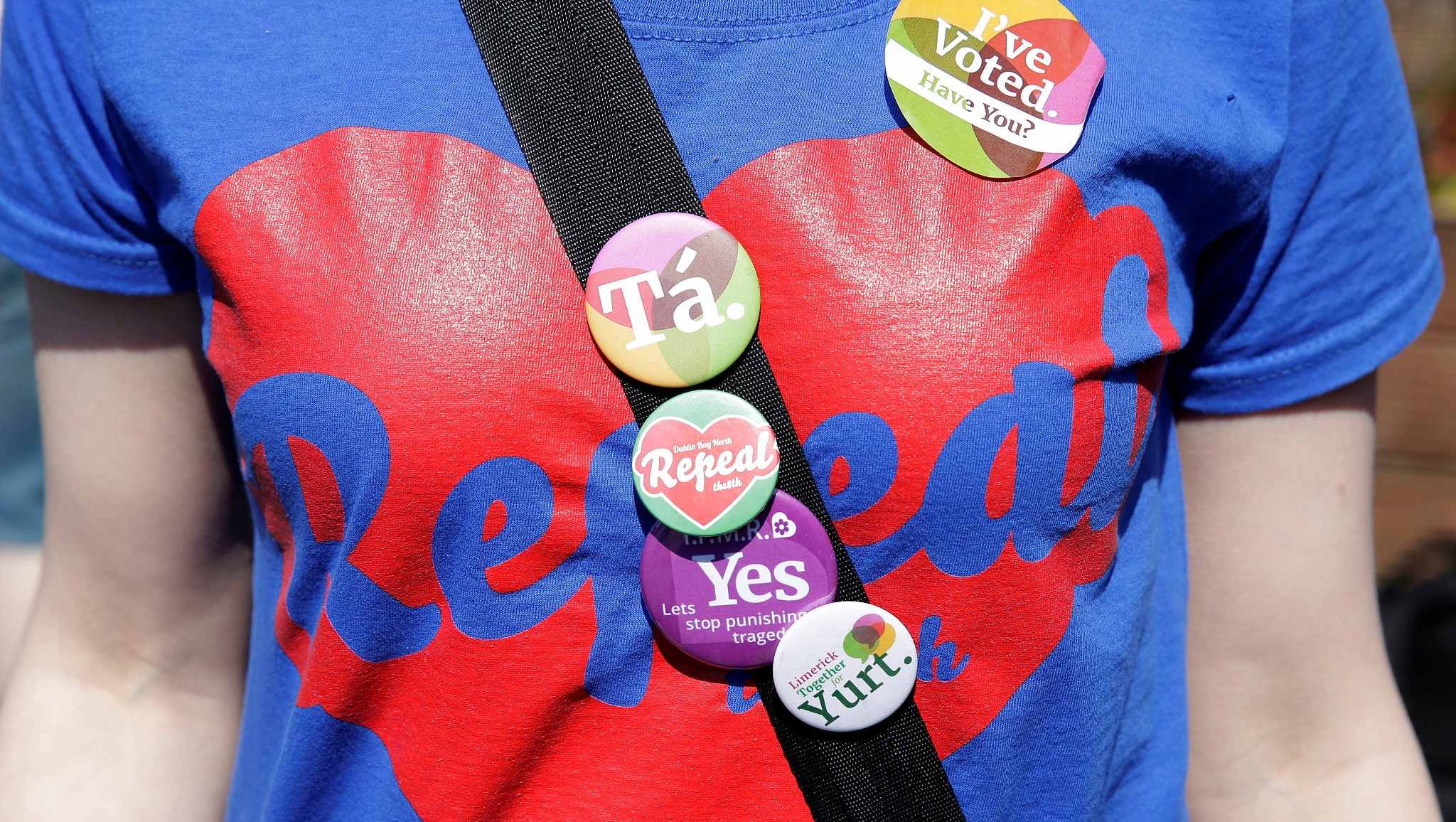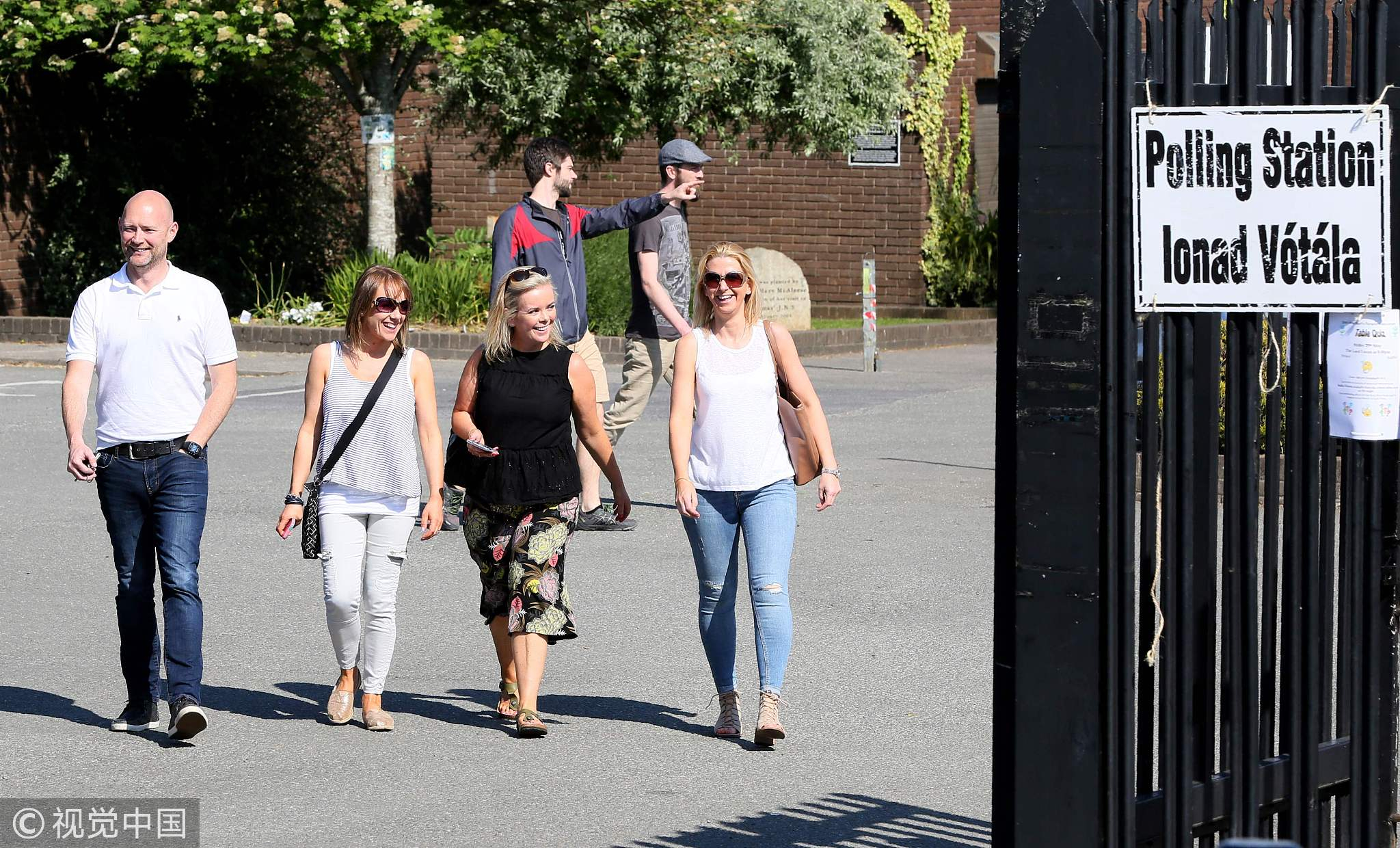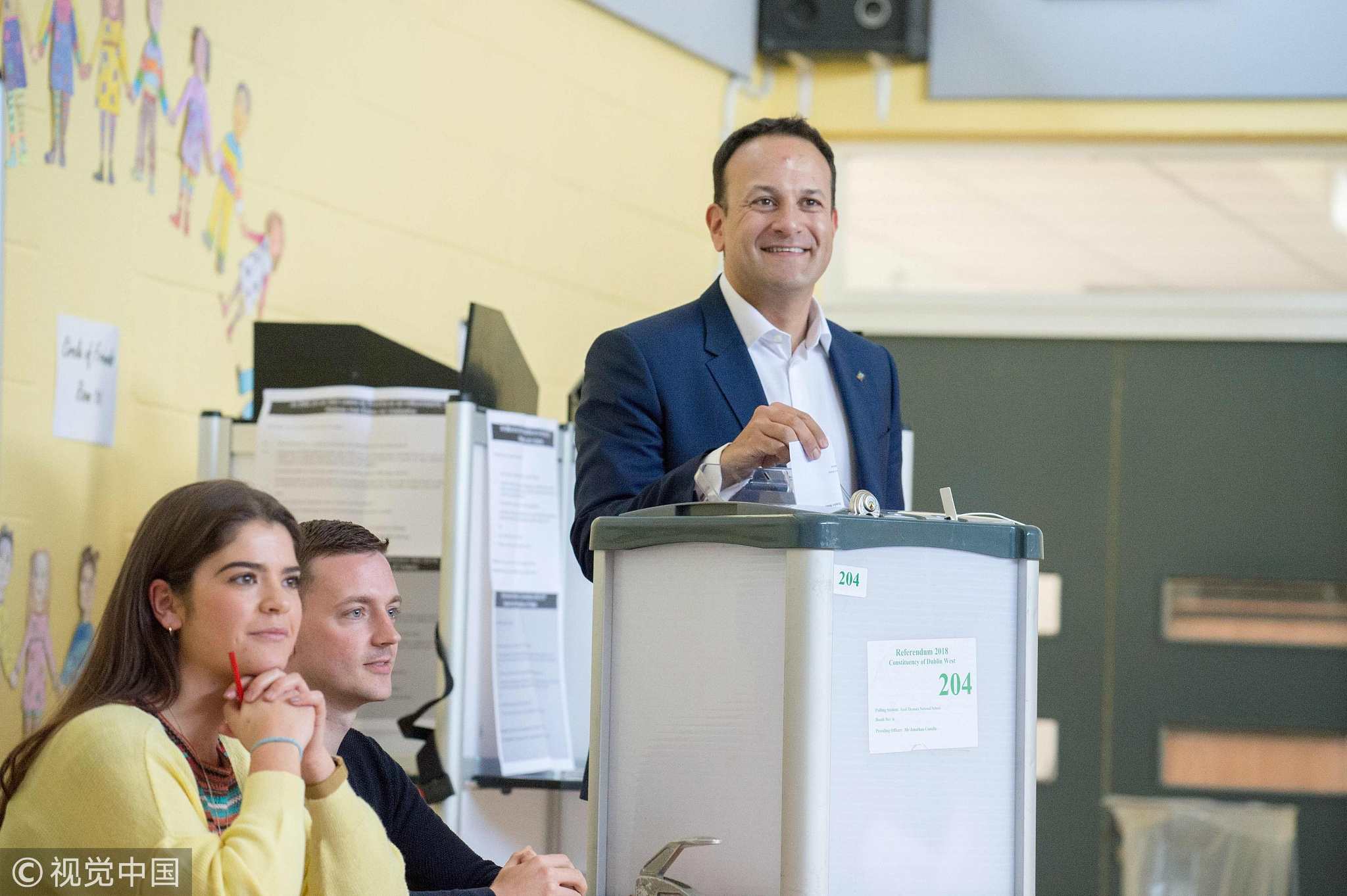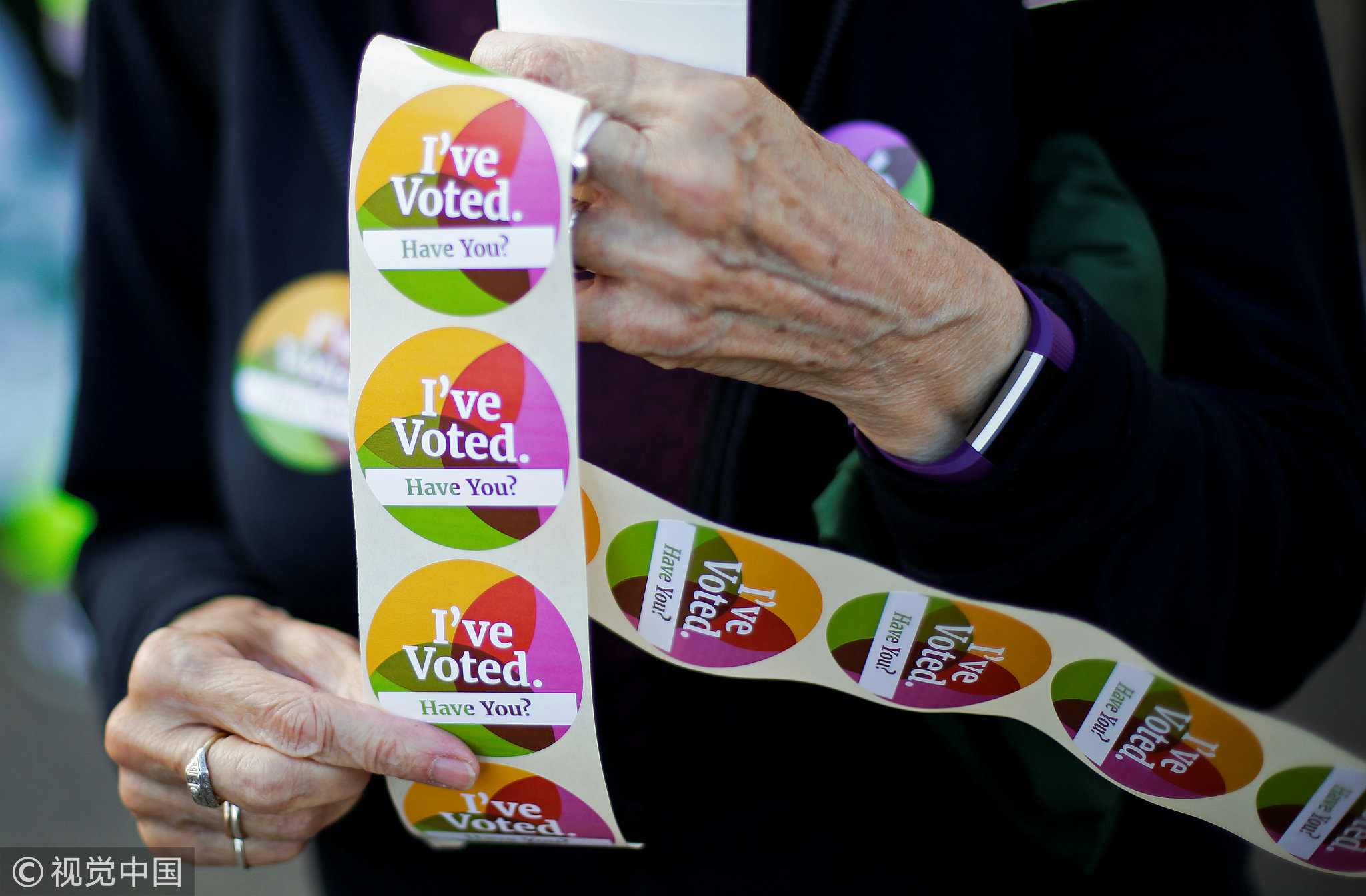
World
12:06, 26-May-2018
Irish voters show mass support for lifting abortion ban: exit polls
CGTN

Irish voters came out in force on Friday to support a repeal of the country’s Eighth Amendment, paving the way for the country to liberalize one of Europe’s most restrictive abortion laws, exit polls showed.
An Irish Times/Ipsos MRBI exit poll suggested that voters in the once deeply Catholic nation had backed change by 68 percent to 32 percent.
An RTE/Behaviour & Attitudes survey put the margin at 69 percent to 31 percent.

Voters leave a polling station during the Irish referendum on abortion in Dublin, Ireland, May 25, 2018. /VCG Photo
Voters leave a polling station during the Irish referendum on abortion in Dublin, Ireland, May 25, 2018. /VCG Photo
"Thank you to everyone who voted today. Democracy in action. It's looking like we will make history tomorrow," Prime Minister Leo Varadkar, who backed the reform, said in a tweet.
The historic referendum asked voters whether to repeal a 1983 constitutional ban on abortion. Under that law, anyone terminating a pregnancy in Ireland could face 14 years in jail.
This has led to thousands of women travelling each year to neighboring Britain, where terminations are legal, or increasingly turning to abortion pills sold online.
New legislation in 2013 has allowed abortions where the mother's life is in danger, but in all other cases, the procedure remains illegal.
On Friday, people arriving at polling stations spoke about the momentousness of a complex decision that in many cases pitted moral against religious beliefs.

Ireland's Prime Minister Leo Varadakar poses for a photograph as he casts his ballot during the Irish referendum on abortion in Dublin, Ireland, May 25, 2018. /VCG Photo
Ireland's Prime Minister Leo Varadakar poses for a photograph as he casts his ballot during the Irish referendum on abortion in Dublin, Ireland, May 25, 2018. /VCG Photo
Ireland has traditionally been one of the most religious countries in Europe. However, the Roman Catholic Church's influence has waned in recent years following a series of child sex abuse scandals.
Varadkar called the vote a once-in-a-generation chance and voters responded with national broadcaster RTE reporting that turnout could be one of the highest for a referendum, potentially topping the 61 percent who backed gay marriage by a large margin.
Support was strong among both women and men. People over 65, however, voted mostly against change, while among 18-to-24-year-olds, 87 percent voted to allow abortion, according to polls.
Photographs on Twitter showed campaigners hugging and in tears at the Together4yes umbrella group's headquarters shortly after the first exit poll was published.
Justice Minister Charlie Flanagan called it "another big step out of our dark past." Minister for Children Katherine Zappone said an "emotional, historic day" lay ahead.
No social issue has divided Ireland's 4.8 million people as sharply as abortion, which was pushed up the political agenda by the death in 2012 of a 31-year-old Indian immigrant after she was refused a termination.

A woman holds stickers as Ireland holds a referendum on abortion in Dublin, Ireland, May 25, 2018. /VCG Photo
A woman holds stickers as Ireland holds a referendum on abortion in Dublin, Ireland, May 25, 2018. /VCG Photo
The fiercely contested vote divided political parties, but unlike in the past, when religion was front and center and abortion was a taboo subject for most, the campaign was defined by women on both sides publicly describing their personal experiences of terminations.
"Yes" campaigners argued that with over 3,000 women travelling to Britain each year for terminations and others ordering pills illegally online, abortion is already a reality in Ireland.
Vote-counting begins at 0800 GMT (4:00 p.m. BJT) on Saturday, with the first indication of results expected mid-morning.
Some "Yes" politicians were already calling on the government to pass new abortion legislation without delay following the publication of the exit polls.
The Irish government has proposed that abortion be allowed up to 12 weeks and between 12 and 24 weeks in exceptional circumstances.
8292km
Source(s): AFP
,Reuters

SITEMAP
Copyright © 2018 CGTN. Beijing ICP prepared NO.16065310-3
Copyright © 2018 CGTN. Beijing ICP prepared NO.16065310-3